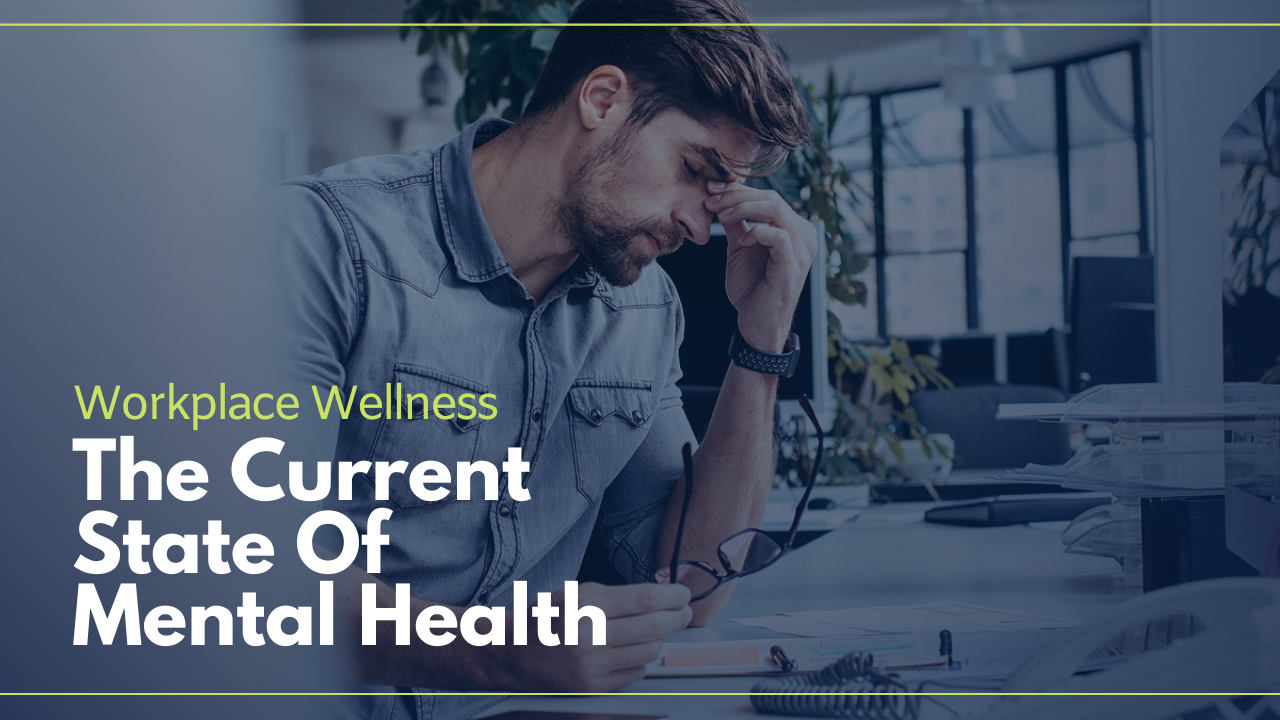- New research reveals higher levels of stress among workers and expectations of an impending mental health crisis.
- The ongoing pandemic is adding pressure to workers, who are already concerned about job insecurity, market volatility, and their health.
- Companies need to act now by helping employees manage stress, maintain well-being and build resilience.
The COVID-19 pandemic has upended every single aspect of life and this is threatening employee mental health.
A recent survey from MetLife found that:
- 2 in 3 employers say a mental health crisis in the U.S. will come within three years.
- 1 in 5 employers say the U.S. is already in a mental health crisis.
- 9 in 10 employers say their organization is not completely ready for a mental health crisis.
- 5.5 million employees no longer feel mentally healthy, a drop of 7% since April 2020.
The above findings are concerning, and MetLife reports that employers are on alert as most of them foresee a mental health breaking point very soon.
Work, in and out of itself, was already a leading source of stress pre-pandemic. Now, the situation is worse.
“Children at home add new pressures for working parents. Market volatility over the short- and long term threatens livelihoods and retirement, while job insecurity puts paychecks and health insurance in jeopardy. Social and racial upheaval coupled with polarized politics compound the challenges.”
The Current State of Mental Health
MetLife found that 38% of adults report symptoms of anxiety disorder or depressive disorder, an increase of 27% since 2019.
Although worker productivity and engagement saw an increase at the start of the pandemic when people first started working from home, that boost is gone. “Worker productivity and engagement is decreasing from an initial bump in the spring.”
The survey identified the following as reasons why 41% of employees feel stressed, burned out, or depressed at work regularly:
- 81% are experiencing financial problems
- 77% have fears of job security, workload, and other workplace issues
- 60% are stressed about getting coronavirus or having a loved one get it
- 47% are stressed from having to physically distance from loved ones
- 44% are stressed due to the upcoming U.S. presidential election
- 41% are stressed about social justice issues
- 35% are stressed about not having access to healthcare because of COVID-19.
To make matters worse, only 26% of workers reported having sought help for a mental health issue (like stress or burnout) in the past. If this attitude remains, then it is unlikely that employers are able to recognize employees that are struggling and provide them with the necessary support.
According to the survey, the following is what has stopped workers from getting help in the past and now:
- Doubts about the effectiveness of programs
- Stigma from coworkers, friends, and family
- Fear of discrimination
- Company culture isn’t supportive enough
- Too hard or time-consuming to deal with.
Why Organizations Need to Act Now
“Because poor mental health is deeply entwined with worker output, our current moment’s barrage of new challenges threaten business health.”
Unfortunately, 1 in 3 employers do not consider improving mental health as an important business objective. Furthermore, 1 in 3 of employers are not highly concerned about the mental health of their employees.
Of those employers that prioritize mental health, only a handful have the infrastructure in place to truly support the mental health of their employees at a scale.
To make matters worse, MetLife believes that “infrastructure from a pre-COVID era likely won’t hold up”, as burnout, stress, and depression all lurk in new and unfamiliar forms.
These times are unprecedented, and there’s no clear path that companies can follow. However, one thing is clear, organizations need to rethink their approach to mental health to ensure that they are supporting workers through these challenging times.
This rethinking requires “innovations in culture, improved leadership behaviors, and enhanced support for stress and mental health,” according to MetLife. Furthermore, it requires that companies create an environment that destigmatizes emotional needs to foster well-being and accelerate employee resilience.
What Companies Can Do to Support Employee Mental Health during and after COVID-19
MetLife suggests organizations focus on helping employees build resilience. According to the report, by building resilience, employers “can help workers manage and rebound from stress while maintaining well-being.”
A good starting point for organizations is for them to promote mental health awareness by providing access to education and resources. This can help eliminate barriers and stigma, which can lead to employees feeling more comfortable about addressing mental health issues.
“To foster resilience, companies need to signal to employees that mental health is a shared problem, that they recognize it, and that they’ll take tangible steps to change it. Mental health must be acknowledged and addressed visibly—and that starts with leadership.”
The focus should be around normalizing conversations about mental health. Managers can do this if they are trained to recognize the signs of stress, burnout, and other mental health issues; if they are proactive on how they talk to employees about stress, burnout, and mental health; and if they make solutions and resources available to employees in need.

 Dr. Gleb Tsipursky – The Office Whisperer
Dr. Gleb Tsipursky – The Office Whisperer Cat Johnson – Coworking Marketing Maven
Cat Johnson – Coworking Marketing Maven Angela Howard – Culture Expert
Angela Howard – Culture Expert Drew Jones – Design & Innovation
Drew Jones – Design & Innovation Andrea Pirrotti-Dranchak – Competitive Advantage
Andrea Pirrotti-Dranchak – Competitive Advantage Jonathan Price – CRE & Flex Expert
Jonathan Price – CRE & Flex Expert Jeremy Fennema – Tech Innovation Alchemist
Jeremy Fennema – Tech Innovation Alchemist









